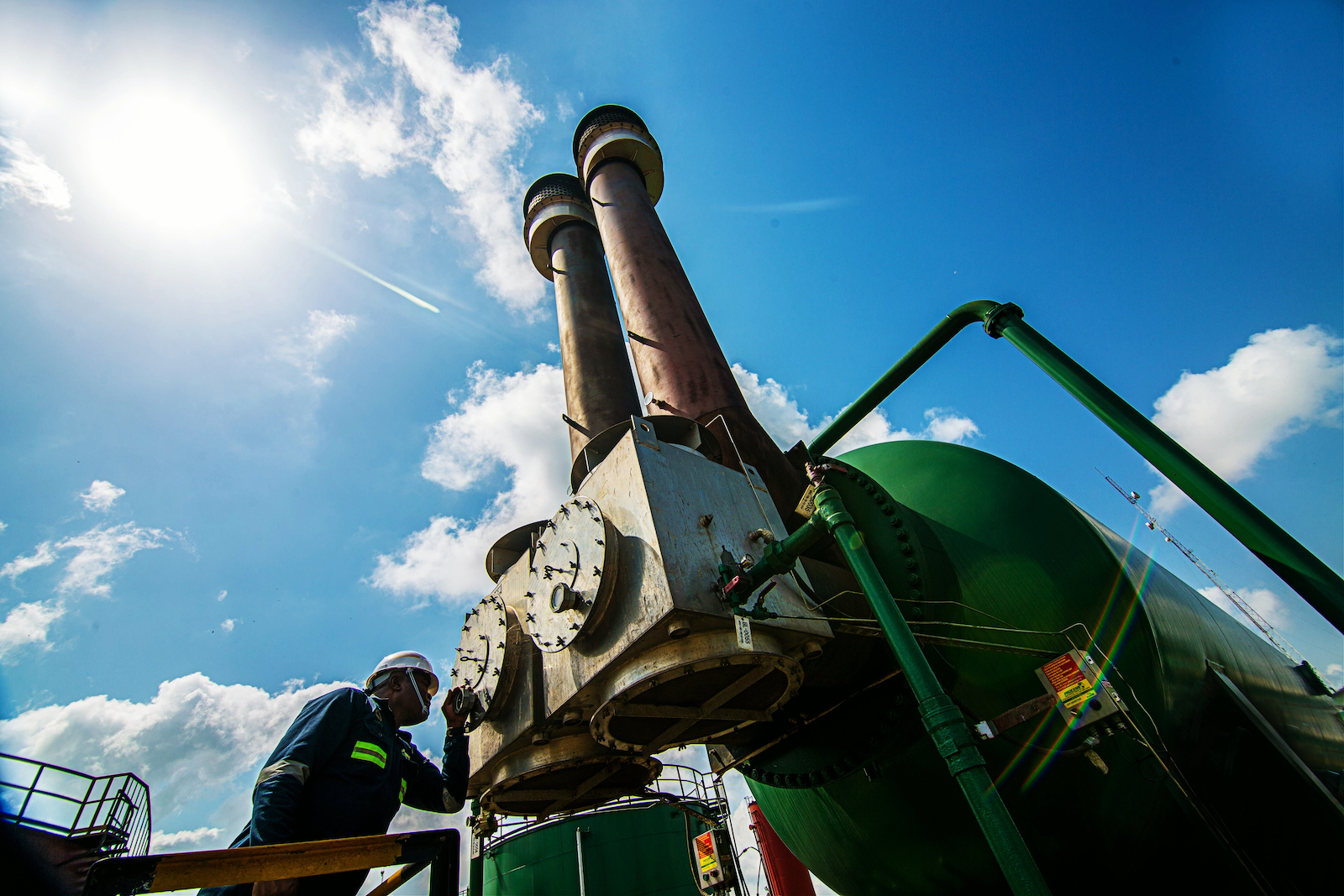
Nigeria’s Oil Sector Needs a Free Market Approach
Nigeria recently achieved a historic milestone with the inauguration of the Dangote Refinery, one of the world’s largest oil refineries, situated just outside Lagos. Spearheaded by Aliko Dangote, Africa’s wealthiest individual, this monumental project will end Nigeria’s reliance on imported fuel and generate thousands of jobs. The successful launch of this refinery underscores the potential benefits of a free market in the oil sector and the urgent need for Nigeria to attract more private investment in the industry.
Nigeria, Africa’s second-largest oil producer, currently lacks the capacity to refine its own oil. Its existing four refineries, with a combined capacity of 445,000 barrels per day, suffer from poor maintenance and consistently operate well below their optimal levels. Despite holding an estimated 37.1 billion barrels of proved crude oil reserves, Nigeria still has to import upwards of 90% of refined petroleum to meet domestic demand.
Records show that the average combined capacity utilization — the percentage ratio of production to installed capacity — of the country’s four refineries has been below 20% since 2013. And Nigeria’s per capita local refining capacity is currently one of the lowest among OPEC countries. Decades of mismanagement and corruption have plagued their operations, with billions of dollars spent on turnaround maintenance and rehabilitation yielding little improvement. Even the latest attempt in 2021 to revamp one of the refineries with a budget of $1 billion raises doubts about its feasibility and viability, considering the history of failed endeavors.
Due to insufficient refining infrastructure, Nigeria expends billions of dollars a year on imported refined petroleum, leading to a significant drain on foreign exchange reserves. Between 2015 and 2019, the cost of importing refined petroleum exceeded exports by $58.5 billion, leaving the country vulnerable to domestic fuel supply disruptions caused by price fluctuations and exchange rate volatility.
The Dangote Refinery emerges as a game-changer, aiming to address these challenges by doubling Nigeria’s refining capacity, satisfying domestic fuel demands, and generating foreign exchange through exports. With a capacity to process 650,000 barrels per day, surpassing the combined capacity of the country’s existing refineries, it is projected to produce 53 million liters of gasoline, 4 million liters of diesel, and 2 million liters of aviation jet fuel daily. This surplus will not only meet Nigeria’s daily petrol consumption of approximately 33 million liters but also allow for exports to other countries.
The benefits of this $20 billion refinery extend far beyond resolving Nigeria’s refining issues. It is set to create thousands of jobs and stimulate the local economy. Moreover, the refinery will serve as a critical source of raw materials for industries like petrochemicals, fertilizers, plastics, and textiles.
The Dangote Refinery’s success stands as a rare achievement in a sector long hindered by government interference, corruption, and limited private investment. The government has discouraged private investment in refineries through stringent regulations and bureaucratic red tape. Private refineries face multiple licensing and approval requirements from government agencies, hindering their operations. The government also maintains a monopoly over crude oil supplies to refineries and employs a subsidy regime that keeps petrol prices artificially low, rendering private refinery operations barely profitable.
According to a list of private refineries in Nigeria, in April 2021, there were 23 private refineries, with a total capacity of 1.09 million barrels per day but only one is currently operational. Others have been abandoned or delayed due to funding limitations, restricted access to crude oil, or regulatory roadblocks. Compounding the problem is a mandate that only one for-profit oil company can participate in privately-owned refineries exceeding a 50,000 barrels per day capacity which further creates an uneven playing field for private refineries, dissuading potential investors who seek full ownership and control of their projects.
The celebration of Aliko Dangote’s successful venture demonstrates how private investment can revolutionize Nigeria’s oil sector, fostering efficiency and innovation. It showcases the country’s immense potential to emerge as a global player in the petroleum industry and other sectors, but relying solely on the efforts of one individual is not enough. Nigeria urgently requires more private investors like Dangote to channel their resources into all sectors of the economy. This is why the government must take decisive action to dismantle regulatory barriers that stifle private investments.
To encourage more competition in the industry, which will help consumers, the government must streamline the licensing process and reduce bureaucratic red tape. By relinquishing its monopoly over crude oil supply and allowing private refineries to decide who owns stakes in their investments, the government will empower investors to optimize operations and maximize efficiency.
And while subsidies may provide short-term relief to consumers, artificially low petrol prices hamper the viability of private refineries. A transition towards market-driven pricing will ensure a level playing field and attract more investors willing to contribute to Nigeria’s oil and gas industry.
The successful establishment of the Dangote Refinery provides a compelling case for Nigeria to prioritize private investment in the oil sector. It serves as a reminder of the tremendous benefits that can be reaped when the government allows market forces to drive growth and innovation. Embracing a free market approach will not only address Nigeria’s refining challenges but also stimulate economic diversification, create employment opportunities, and spur the development of ancillary industries.
